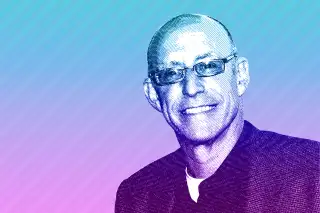Michael Pollan Says There’s a Time and Place for Doritos

In his new Netflix documentary series Cooked, out Friday, best-selling author and food-thinker Michael Pollan leads viewers on a tour through the history and idea of cooking, framed by the most basic elements: earth, fire, water, and air. Complementing his recent PBS documentary In Defense of Food, it makes us reconsider what we eat and why. And that’s a great excuse to talk money.
Isn’t eating really well, if not an outright luxury, at least somewhat at odds with eating cheaply?
I think that is something of a myth put forward in part by the food industry – that they can cook cheaper for you than you can yourself. Well, you have to pay someone to cook for you—even if it’s McDonald’s, you have to pay them something. To eat well, you either have to invest money or time. If you can put in some time, the raw ingredients are not that expensive. You can eat extremely well on a budget.
And right now, in our quest for bargains, we are participating in an exploitative economy. Whether you’re talking about the server at the restaurant or the person cutting the meat in the processing plant or the animals in the feed lots, there’s a whole lot of abuse behind the “bargain.”
Cooked demystifies the economics of food, and keeps bringing us back to the kitchen. But you’ve said you fell into food as a subject.
I was writing about the natural world, and that led to agriculture. I didn’t expect to get interested in cooking. But I did come to realize that that is what stands between most of us and a healthier diet—our eagerness to outsource our cooking to corporations.
But now you’re so associated with food. Haven’t you told a story about some guy in a grocery store commenting on your shopping?
Yes. At the time, my son’s weekend treat was that he could have a sweetened cereal on Saturday. So this tall, bearded, graduate student taps me on my shoulder and says, “I’m watching Michael Pollan shop for groceries.” And there in my hand was a box of Fruity Pebbles. I did not go back to that grocery store for a long time.
So are you self-conscious about what you buy at the store?
Yeah. And at restaurants. The thing is, I’ve found a more enjoyable way to eat, but I don’t obsess about it as much as the people around me, for whom I now function as their food superego. [Laughter]
Recently one of my colleagues had at the office his nine-year-old son—who was starved, and found the vending machine in the basement. Normally this is not somebody who gives his son junk food, but he’d forgotten to bring a snack. His son wanted some Doritos that cost a $1.25, but he only had a dollar on him. And he sees my door is open—but he was too self-conscious to ask me for a quarter to buy his kid Doritos. [Laughter]
I would have given him that quarter in a second! There’s a time and place for Doritos, and this was probably it. But people seem to think that it would deeply offend me.
Speaking of spare change, I’ve started asking interviewees: If you notice a penny on the sidewalk, do you pick it up, keep going, or it depends?
[Laughs.] Uh, I keep going. But then I guess the question becomes: At one what denomination do I stop? And I guess I would say at a quarter.
Jerry Seinfeld, on The Daily Show the other night, said something like: “When you’re 61 and someone says ‘Oh, did you see that?’ you don’t even turn around, because you’ve probably seen something like it before, and you’ll see something like it again.” I think he would certainly include bending down to pick up change.
Sure. You’ll see another penny.
They’re all over place. You can’t get away from them!
Do you personally spend more on food since you got interested in this subject?
One of my rules is pay more, eat less. You do get what you pay for, and if you’re willing to pay more for pastured eggs or grass-fed beef, you’re getting something that’s more delicious and you’ll feel better about eating it. And Cooked is not meant to argue people into cooking—it’s to entice them into cooking.
I probably spend more on food than a lot of people, and I feel good about the whole food chain I’m supporting when I’m doing it. But even I have to remind myself. I’m always complaining about the prices at the farmer’s market. And my wife will say in a sarcastic voice: “Pay more, eat less.”
This interview edited for length and clarity.